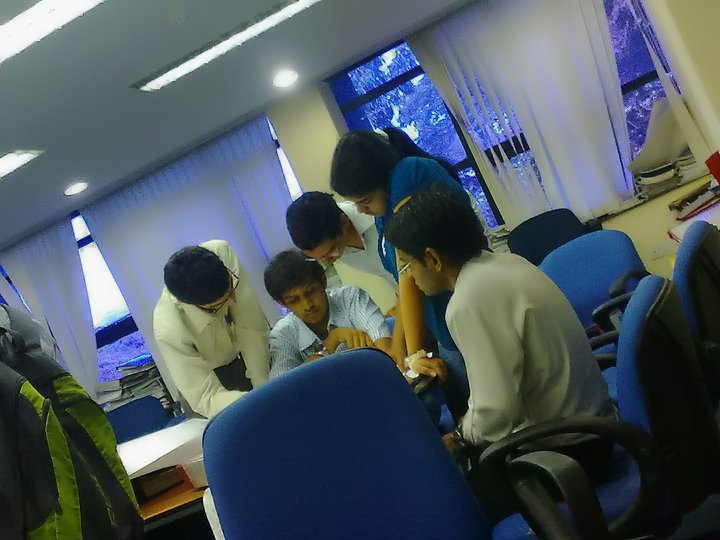So, you’ve bagged a Summer Internship in the Sales and Marketing domain. The project requires you to call/ meet people to gather “insights” from them. These people can be customers/ consumers/ influencers/ distributors or any other target group. If you have already started contacting people yourself, you must have surely faced multiple rejections. And rejections are daunting. The fear of rejection would hold you back every time you dial a number on the phone. However, this is one essential skill which you need to master and muster enough courage to convince the person on the other line to talk, consider your request and grant you what you require.


From my experience in making such calls, as well as the advice I’ve received on making any kind of sales/ sponsorship pitch calls, I have gathered a few insights. To save your time on the learning curve, here are nine points you may consider before making the next call:
1) Doing adequate research: Know as much as possible about the person (from his/ her LinkedIn profile, for example). Note down certain key points such as alma mater, recent achievements, anything you may have in common with him/ her. This might be of help during the conversation when you can refer to such things to make the other person talk/ keep him involved in the conversation.
2) Calling the board-line: In case you need to call the board-line, ask for the name or for a specific designation. You need to speak with authority. If you are vague, or not confident, there is a high chance that the call might never be transferred or you might get a cold response to try again later as the person you are trying to reach is busy in a meeting/ out of office.
3) Starting with a professional greeting: Rather than just saying a “hello”, start with a professional greeting like “Good morning, Mr. Iyer” or “Good afternoon, Mrs. Agrawal”. Make it formal, and make it personal. The first few lines need to be spoken with utmost confidence.
4) Introducing yourself: Generally, you may introduce yourself along with the company name. A “summer intern at XYZ Company” may not always work well. You may either start as “Student at ABC” or “Consultant to FGH Company” or any other variation that you may deem to be appropriate. A few calls will help you find out what greeting works best.
5) Stating how much time it will take: You should inform the other person specifically on how much of his/ her time you plan to take. Saying “I need only 2 minutes of your time” helps the person not to make an impulsive decision to cut the call short. The same rule is to be applied when you later ask for a meeting. You should say “I will need 15 minutes of your time to gather data for my survey.”
6) Stating the purpose of the call: The purpose of the call has to be extremely brief one liner “Need your help/ advice on a project”. Saying it’s an academic project usually makes more people open to helping you out. Then start explaining it in detail and respond to the other person’s questions/ comments.
7) Scheduling a meeting: Get a confirmation to meet, either in person or on a teleconference. Ask for a specific commitment. You may face rejection/ dejection if you accept “come anytime tomorrow/ on Friday” as the reply. Clarify on the date-time-venue for the meeting. If you are calling from the board line, ask for personal number. Ask for email id, if necessary. Ask if you need help with the directions.
8) Using an alternate-of-choice: Ask for a specific time date, like “Can we meet at 12 noon tomorrow?”; or better, give them an alternate choice “Mr. Saha, I can come to your office at 3:30 P.M. today. Or, would 10:00 A.M. tomorrow suit you better?”. Notice that you should not ask “when can we meet?”. Using the alternate of choice strategy helps you get in control of getting the appointment.
9) Following up: If a meeting is a few days later, send an email or text message for confirmation. These days most people are open to communicating via Whatsapp. It is better to confirm with the person once again before starting to travel for the meeting.
The above are just some of the tips which may be useful to you for whatever kinds of calls you make. Do let me/ other readers know about your experiences/ what worked best for you in the comments section. Also, do not forget to share this with your friends who may find this useful.
About the author:
Mitesh Gangar is a PGP participant at IIM Indore. Before doing his MBA, he also worked as Head, New Initiatives in a startup which delivered enterprise mobility solutions. He holds a bachelor’s degree in Chemical Engineering from UDCT (now, ICT). He is an avid reader and is always in pursuit of excellence. Some areas that interest him are: Digital Marketing, Corporate Strategy, Chemical Project Management and Employee Engagement.
Follow him on twitter -
@mythace.



